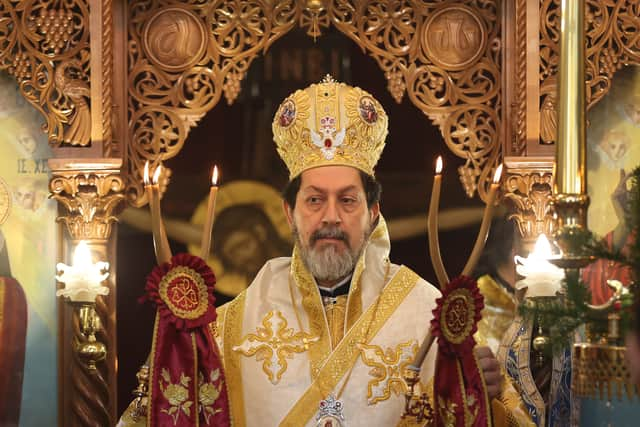When is Epiphany 2023? What the day celebrates - significance and difference between 12th night and Epiphany
and live on Freeview channel 276
Epiphany, also known as Theophany, marks the final celebratory day of the Christian holiday season. The day is celebrated by followers of the Western denomination and Eastern denominations of Christianity alike.
Traditions include Epiphany singing, chalking the door, having your house blessed, consuming Three Kings cake and winter swimming - as well as church services.
Advertisement
Hide AdAdvertisement
Hide AdBut as we draw near to the end of the festive season - when is Epiphany and what are its traditions and history? Here’s what you need to know.


When is Epiphany 2023?
The traditional date for the feast is annually 6 January, but since 1970, some countries have celebrated this event on the Sunday after 1 January - which this year is 8 January.
People who follow eastern churches, which still observe the Julian calendar, hold the feast on 19 January, as there is a 13-day difference between the Julian and Gregorian calendars.
After Pope Pius XII abolished all but three liturgical octaves in 1955, the Latin Church celebrated Epiphany as an eight-day feast known as the Octave of Epiphany, starting on 6 January.
The significance and history of Epiphany
Western Christianity
Advertisement
Hide AdAdvertisement
Hide AdEpiphany, in western Christianity, commemorates the visit of the magi - the three wise men - to Christ as a child. For this reason, Epiphany is also called Three Kings’ Day, and in some traditions celebrated as Little Christmas. However, western Christians also commemorated this day with the baptism of Jesus, and the wedding at Cana, where it is believed Jesus turned water into wine.
This celebration also marks the liturgical season of Epiphanytide - the Epiphany season which comes immediately after the Christmas season.
Eastern Christianity
For eastern Christians, Epiphany commemorates the baptism of Jesus in the Jordan river, which is seen as his manifestation into the world as the Son of God.
Historically, the celebration may have begun in the eastern half of the Roman Empire as a feast to honour the baptism of Jesus, with Basilides, an early Christian Gnostic teacher, celebrating the day of Jesus’ baptism with readings. In ancient gospel manuscripts, the text is arranged to indicate passages for liturgical readings so if a congregation began reading Mark at the beginning of the year, it might arrive at the story of the baptism on 6 January.
Advertisement
Hide AdAdvertisement
Hide AdEventually, Epiphany included the commemoration of Jesus’ birth, the visit of the magi, all of Jesus’ childhood events, up to and including the baptism by John the Baptist, and the miracle at the wedding at Cana in Galilee.
However, in the Latin-speaking west, Epiphany emphasised the three kings’ visit. The magi represented the non-Jewish people of the world, so this was considered a revelation to the gentiles.
What is the difference between Twelfth Night and Epiphany?
Twelfth Night is also known as Epiphany Eve, as it marks the last night of the twelve days of Christmas and the upcoming Epiphany. However different traditions mark the date of Twelfth Night as either 5 January or 6 January depending on if the counting begins on Christmas Day or Boxing Day.
In many western Christian traditions, Christmas Day is considered the first day of Christmas and the twelve days are 25 December to 5 January, making Twelfth Night on 5 January, which is Epiphany Eve.
People in many localities traditionally remove their Christmas decorations on Epiphany Eve (Twelfth Night).
Comment Guidelines
National World encourages reader discussion on our stories. User feedback, insights and back-and-forth exchanges add a rich layer of context to reporting. Please review our Community Guidelines before commenting.
